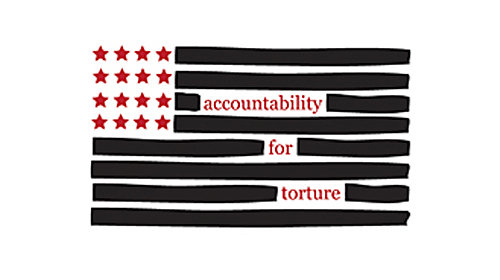
Once you've seen the Abu Ghraib , they're not easily forgotten.
The hooded man, the electrodes, the naked bodies piled upon each other, and the grinning soldier with a thumbs up. The images are the stuff of nightmares. They're also incontrovertible evidence that our government engaged in torture, and their publication sparked a national conversation that helped end the Bush administration's torture program.
Nevertheless, the Obama administration is still fighting to keep the full truth about torture ã including photos the public hasn't yet seen ã from the American people. But recently the courts and the Senate have been pushing back, resisting the government's claims that it can't reveal its torture secrets. As a result, those secrets may finally be dragged into the light.
The government is holding back as many as 2,100 never-released images from Abu Ghraib and other detention centers overseas. The âü¯áû颈§Ý§Ã¿« first sued for their release 10 years ago, and in August, District Court Judge Alvin Hellerstein ruled that the government must publish the photos unless it can defend withholding them on an individualized basis.
Tomorrow the government will appear in court and tell Judge Hellerstein and the âü¯áû颈§Ý§Ã¿« what it plans to do.
The government based its suppression on a , enacted after the âü¯áû颈§Ý§Ã¿« won the release of the images in the trial and appeals courts, that permits the secretary of defense to withhold an image for up to three years if the secretary certifies that its release would endanger Americans. In 2012, then Defense Secretary Leon Panetta issued a half-page certification for the entire collection, of more than 2,000 images.
"Standing alone," Judge Hellerstein wrote in his August ruling, Mr. Panetta's certification is "insufficient." The government must prove that the secretary reviewed each photo by itself and "show why" the publication of each image risked national security.
The American people are entitled to know what took place in U.S. detention centers. And it would be completely backwards to suppress images of government misconduct on the grounds that they are too powerful to be disclosed when it is often disclosure, accountability, and ensuing reforms that prevent misconduct from recurring.
These principles aren't just about righting the historical record; they have practical applications to this day. Just this month, another federal judge ordered the at GuantûÀnamo Bay. These videos form part of the basis of Syrian detainee Abu Wa'el Dhiab's challenge to the force feeding practices the government inflicts on him today, practices that have been and which constitute cruel, inhuman, or degrading treatment, possibly even torture.
Judge Gladys Kessler rejected the government's justifications for keeping the videos from the public as Citing an earlier opinion by Judge Hellerstein in the âü¯áû颈§Ý§Ã¿« case, Judge Kessler dismissed the government's argument that the videos could be used as propaganda by Al Qaeda. Last week, she the 's request for a 30-day reprieve while it decides whether to appeal her orders.
Outside of the courts, the Senate Intelligence Committee is also signaling that it, too, has had enough of the administration's efforts to conceal the truth about torture from the public. The committee voted six months ago to release the summary, findings, and conclusions of its landmark study on the CIA's torture program. Now the committee is pushing back against the administration's efforts to black out so much of the summary to make it . The âü¯áû颈§Ý§Ã¿« has separately sued the CIA for the full Senate report, the CIA's response, and a contemporaneous internal review ordered by then CIA Director Leon Panetta. The CIA must "process" the summary, CIA response, and Panetta review by October 29, which means the agency will be required to justify any withholdings or produce the three reports.
With the courts and the Senate holding the line, we may soon know more than ever ã not only about our past ã but also about our present abusive practices. Only then can we truly .
Learn more about torture and other civil liberties issues: Sign up for breaking news alerts, , and .

